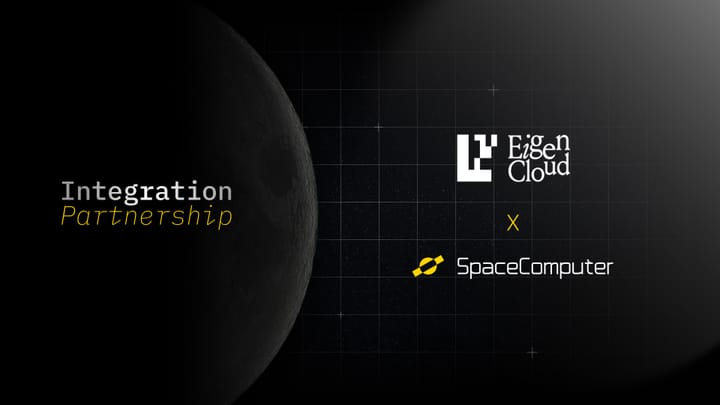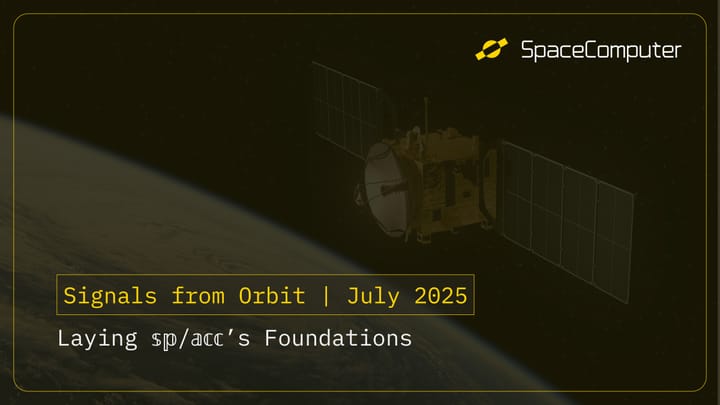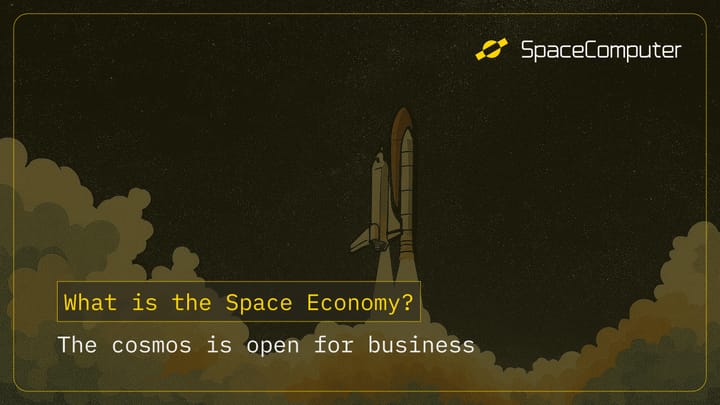SpaceComputer in the US: Notes from Yale, Princeton, and IC3 at Cornell
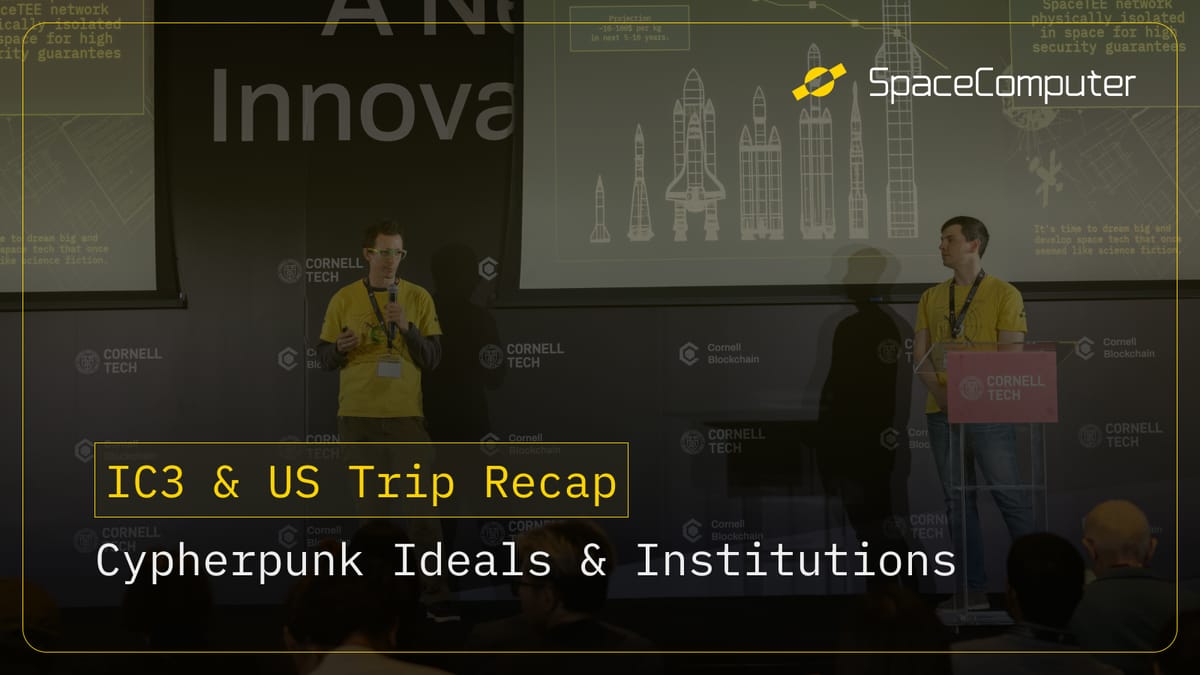
Last week, two of SpaceComputer’s co-founders, Daniel Exponent and Filip Rezabek, made their way to America’s Northeast to participate in the IC3 Blockchain Accelerator and Cornell Tech Blockchain Conference and to visit two of the country’s top academic institutions: Yale and Princeton. They participated in guest lectures, conference panels, and informal gatherings to take the temperature of the current crypto moment in the U.S., strengthen existing partnerships, and kickstart new ones.
From Ivy League classrooms to cypherpunk meetups and Manhattan dinners with regulators and financiers, they saw signs of a shifting regulatory landscape, technical conversations catching up to long-standing challenges, and a growing desire to bridge academia, industry, and ideology.
Follow SpaceComputer on Twitter
Click Here
This post distills Daniel and Filip’s key takeaways and impressions from the trip.
1. “A New Era of US Innovation in Crypto”
At the Cornell Blockchain Conference and the IC3 Demo Day, there was one overarching theme that became immediately clear: The US’s role in crypto is changing.
As Daniel put it:
“The underdogs that previously felt persecuted by the hostile SEC are now respected, and there’s a real push for the U.S. to become a leader—not just in blockchain, but across frontier tech like AI and space.”
Still, clarity remains elusive. Filip noted that while federal ambiguity persists, some of that responsibility is being picked up at the state level:
“New York and others need clarity on regulation. What was dropped at the federal level is now picked up by individual states. Still not clear—just a different level of problems.”
Despite the challenges, we observed real momentum in NYC’s push to remain financially relevant as the world moves toward tokenized assets and crypto-native finance.
2. Cypherpunk Ideals vs Institutional Momentum
A recurring tension Daniel and Filip felt was between the cypherpunk ethos—self-custody, decentralization, and individual sovereignty—and the growing appetite for crypto among large institutions.
Daniel reflected:
“Most people curious about crypto aren’t prioritizing self-custody or decentralization—not because they’re uninterested, but because they’re uninformed. That feels like a core spice that’s missing in crypto right now.”
And yet, that ethos still resonates—sometimes in surprising places.
“What I really liked is seeing how the suited-up finance bros are all tickling inside to increase their ‘sovereign individual’ arsenal and believe in that future.”
The opportunity is in translating those values to broader audiences without watering them down.
3. People, Not Just Panels
The most valuable insights came not from stages but from side conversations and dinners—like the SpaceComputer-hosted dinner in NYC. We can’t wait to reveal the partnerships that have been strengthened and established during our time in America!
4. Opportunities for Long-Term Ivy League Engagement
Across Yale, Princeton (DeCenter), and Cornell, we saw strong individual contributions, but also opportunities in institutional or club-level engagement. This opens the door for SpaceComputer’s long-term presence and partnerships.
“Relevant parties are doing cool stuff, but Blockchain technologies are still not mainstream, allowing for larger-scale engagement,” Filip observed. “We need people to pick it up and run with it.”
Filip gave a guest lecture at Yale for Fan Zhang’s Real-World Cryptography course, and together with Daniel, they were introduced to the DeCenter community at Princeton through Mike Maizels, alongside a guest lecture by Ciamac Moallemi (research at Paradigm, Uniswap, Hyperbolic). The appetite for rigorous, real-world applications of crypto tech was clear.
The takeaway: there's a strong case to build a recurring academic footprint on the East Coast (and everywhere else) through lectures, internships, and conference collaborations.
5. Technical Conversations That Matter
At the Cornell Blockchain Conference and throughout the trip, Daniel and Filip encountered researchers and students asking the right questions—about privacy, performance, and security in blockchain infrastructure. Trusted Execution Environments (TEEs) came up frequently, particularly around use cases for privacy-preserving computation and large-scale applications.
Filip summed it up:
“TEEs and other technical solutions are being discussed in many circles. Besides, people are finally starting to discuss improvements to the P2P layer, which improves and provides security to consensus and the overall system design.”
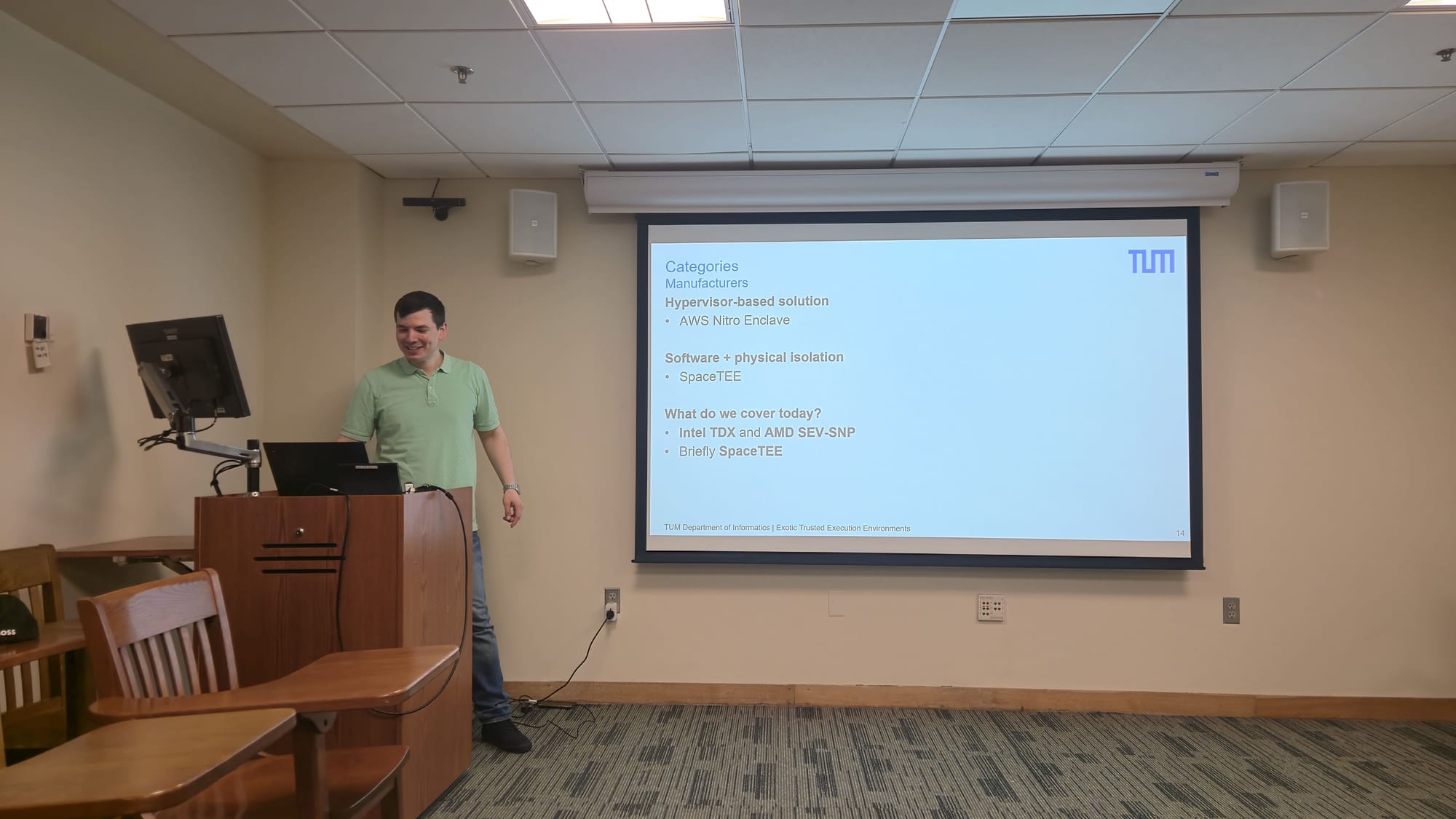
These conversations echoed and validated the directions taken by recent developments in ecosystems like Sui, Solana, and increasingly Ethereum.
6. Space Thesis Confirmed ✅
SpaceComputer is building cypherpunk crypto systems for the space frontier: The first tamper-proof computer that elevates tokenization to orbit and removes earth-based barriers to true financial freedom. Certainly, Daniel and Filip’s trip confirmed that there’s an appetite for our mission, from both the ideological side of the crypto world and from the institutional players now starting to lean in.
In the near term, we’ll be following up with research partners and potential interns from our visits. We will be returning regularly for recurring events (e.g., Cornell Blockchain Conference), DeCenter’s Sci-Fi-themed conference, and deepening our engagement with academic researchers everywhere tackling privacy, incentive design, and protocol infrastructure.
When asked what the next steps are, Filip put it best:
“Build. Keep the connection to students and researchers alive, and don’t lose sight of the core values.”
If you have any questions or would like to suggest opportunities for further research or partnerships, don’t hesitate to reach out in the official SpaceComputer Telegram chat.


